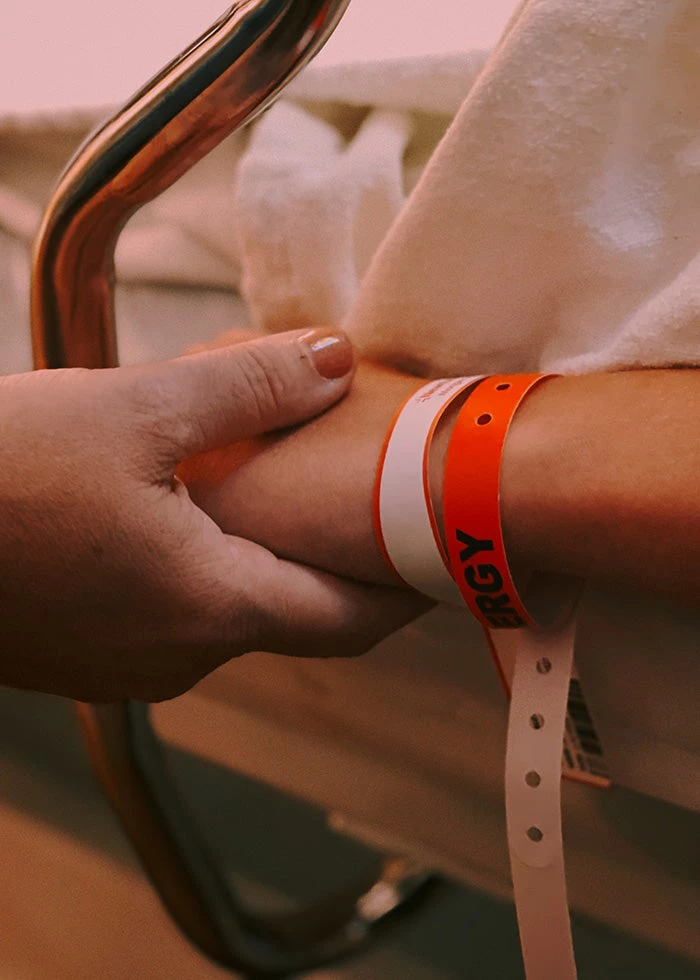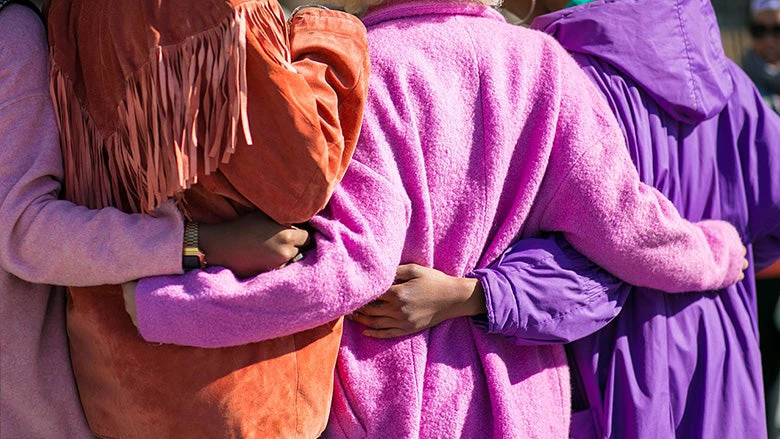 Woman in white shirt standing near brown wooden door. © Joonas Sild / Unsplash
Woman in white shirt standing near brown wooden door. © Joonas Sild / Unsplash
One in two women who experience physical or sexual violence do not seek help. They are often overwhelmed with feelings of shame, humiliation, and fear. Social stigma and lack of family and community support are also discouraging factors. This is especially true in cases of intimate partner violence. The negative consequences of this form of gender-based violence can be extreme. Exposure to such violence is often prolonged and substantially worsens survivors’ health, with increased risk of hospitalization, emergency care, and sedative consumption. Women who experience intimate partner violence also often experience mental health consequences and suicidal ideation. Economically, it can lead to loss of workdays and reduced productivity at work, robbing women of their financial independence.
Medical and mental health services are key to address the immediate physical and psychological trauma. | © Jon Tyson / Unsplash |
Providing support services to survivors can not only protect them from further harm, it can also promote their long-term social and emotional well-being. Medical and mental health services can help them with the immediate physical and psychological trauma. Legal aid services help women navigate the legal system to file complaints, obtain protection orders, begin divorce proceedings, and obtain custody of children. While support services like shelter programs, advocacy services, livelihood support, and community or support groups address the stigma attached to this form of violence. However, Women, Business and the Law findings show that governments still have room to improve to ensure that every woman has access to such services free of cost––having far-reaching benefits for women, society, and the economy at large.
The international community has long recognized this need for providing quality support services to women facing domestic violence. For example, the United Nations Committee on the Elimination of Discrimination against Women (CEDAW) has stressed the need for states to make financial aid; crisis centers; shelters; hotlines; and medical, psychosocial and counseling services easily accessible to women survivors of violence. To achieve this, states have been urged to establish “one-stop centers” that offer legal and social services to women survivors of violence. Similarly, under the Istanbul Convention, states are obligated to ensure that victims have access to services (including legal and psychological counseling, financial assistance, housing, education, training, and assistance finding employment) that facilitate their recovery from violence. The Inter-American Convention on the Prevention, Punishment and Eradication of Violence Against Women (Convention of Belem Do Para) also obligates that states provide specialized services to survivors.
In cases of domestic violence, the abuser often maintains control over the family’s financial resources, restricting women’s ability to seek help. Government investment in support services must not be seen as an economic burden. On the contrary, increasing investment in support services has proven to be a cost-effective strategy time and again. According to one estimate, for every $1 spent on legal aid services, there is an income benefit of approximately $2.41. Another study found that the benefits of providing shelter services to survivors outweigh the costs in the ratio 4.6:1
Effective support services play a critical role in recovery. | © Vonecia Carswell / Unsplash |
Governments around the world have started recognizing the need and benefits of state-sponsored support services, albeit slowly. A pilot study conducted by Women, Business and the Law revealed that only 12 of the 55 economies analyzed provide legally mandated comprehensive and integrated support services (including legal aid, physical and psychological health care support and livelihood support) at no cost to survivors. The Republic of Korea has established a nationwide network of one-stop service centers, the Sunflower Centers, which provide counseling support, medical treatment, legal aid, and emergency rescue services at a single location. Similarly, the Mexican government has set up countrywide Justice Centers for Women (Centros de Justicia para las Mujeres), where survivors receive tailored support services. More recently, in March 2023, Viet Nam launched a pilot one-stop shop to support women survivors of domestic violence in Ho Chi Minh City.
Quality support services for survivors of domestic violence are essential if women are to escape the cycle of violence. Women, Business and the Law also plans to expand its research efforts to collect data on the availability of support services in 190 economies. This data and research will help governments to both recognize the unique difficulties women face when experiencing domestic violence and implement evidence-based, comprehensive measures in support of survivors. Effective support services can provide not just a lifeline, but also encouragement, empowerment, and hope.
Note: More data and information on this fifty-five-economy pilot dataset covering the implementation of laws impacting women’s economic opportunities are available on the WBL website. As the team is continually refining its scope and approach, we would welcome your input and feedback. Support for the work was provided by the Knowledge for Change Program (KCP), State and Peacebuilding Fund (SPF) and United States Agency for International Development (USAID).




Join the Conversation